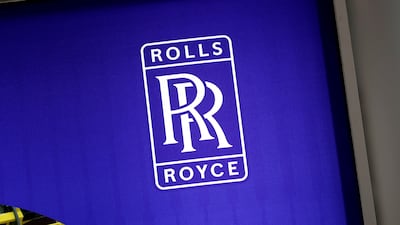British aircraft engine maker Rolls-Royce has unveiled a competition in England and Wales for regional authorities to bid to attract the main location for a factory to build small nuclear reactors.
The company is leading an industry consortium asking regional development bodies to host the manufacturing hub, with investment of up to £200 million up for grabs along with the creation of 200 jobs.
The consortium is called Rolls-Royce Small Modular Reactors (SMR) and hopes to bring a new industry model with global ambitions to the UK energy sector.
“The development and growth of a UK nuclear manufacturing base is core to the deployment of Rolls-Royce SMRs,” it said.
About the same size as two football fields, Rolls-Royce SMRs are capable of generating enough power for 450,000 homes or industries that require a lot of energy. They can serve customers from power-intensive data centres to those looking to produce synthetic fuels and hydrogen.
Unlike full-sized nuclear plants that require tens of billions of dollars in investment, SMRs can be produced in factories, with modules small enough to be transported and produced in a cost-effective manner.
The decision on where to locate the first factory is expected this year, with construction beginning straight after the announcement, to meet the ambition to complete the first 470-megawatt plant by the early 2030s.
The move will win approval from the government after Prime Minister Boris Johnson included SMRs in his 10-point plan for a green industrial revolution as the country strives to hit its net zero goal by 2050 and level up the economy.
The UK government has said nuclear power is the best way to supplement power generated by renewables such as wind, which can be intermittent, and to eliminate fossil fuels from power plants by 2035.
“Small modular reactors offer exciting opportunities to cut costs and build more quickly, ensuring we can bring clean electricity to people’s homes and cut our already-dwindling use of volatile fossil fuels even further,” UK Business Secretary Kwasi Kwarteng said.
Under the plans submitted by the consortium to the Local Enterprise Partnerships, a group of voluntary business and council leader bodies that set economic goals, the reactors will be built in factories across the two countries and then assembled on site – to reduce the risks associated with bigger power plants.
A main hub will then construct the heavy pressure vessels that form part of the reactors, which will be installed at existing sites.
The consortium first secured £210m in funding from the government last year towards the fleet of mini-reactors, after raising a similar amount in private sector funding from investors such US energy company Exelon Generation and BNF Resources.
In its pitch for the competition, Rolls-Royce said that the community chosen for the factor will benefit from “high value, sustainable jobs, which will produce products that will be exported globally for many decades to come”.
Earlier this month, the chief executive of Rolls-Royce SMR, Tom Samson, said SMRs can support the clean energy ambitions of Middle East countries and help power-hungry industrial units to decarbonise production.
Mr Samson took the company’s SMR technology to the World Future Energy Summit – the global conference showcasing green energy technology – amid plans to start talks with government representatives and large industrial companies to explore the potential of deals in the region.
Nuclear energy has a major role to play in “addressing the clean energy needs of any country” and “we are looking to have those conversations when we come down to Abu Dhabi”, Mr Samson said.


